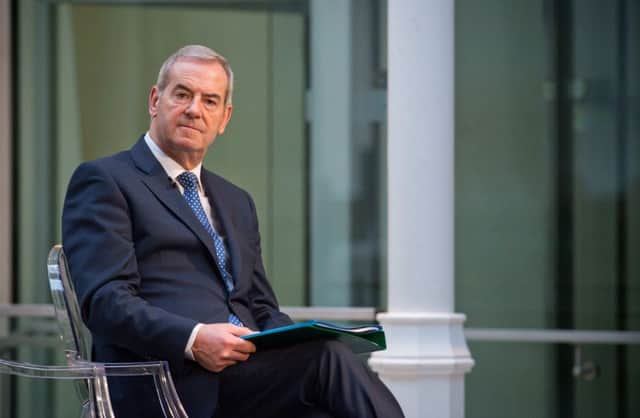Comment: Challenges ahead for Lord Smith at Alliance


Alliance, once a quiet, dividend clipping investment trust where the loudest sound was the ticking of antique clocks, has been pulverised by the activities of New York activist fund Elliot Advisers.
Previous chief executive Katherine Garret-Cox has departed from the top slot. Former chairman Karin Forseke, who fought a rearguard action against the Elliot boarding party before sounding a wholesale retreat, left the board in November with little of the normal floral gifts of tribute and gratitude that normally accompany such departures. Other senior managers have gone. The corporate structure is being reshuffled. And the investment strategy is once more under review.
Advertisement
Hide AdAdvertisement
Hide AdLord Smith takes the chair amid seething turbulence in the stock market and the worst start to the year in living memory. Analysts at Numis say the changes to Alliance’s board leaves it “largely unencumbered by legacy issues”. But there’s as much legacy here as in War And Peace without the chapter breaks.
The problems at Alliance are about more than management, business structure or investment strategy. They go to a profound dilemma as to its role and function. Conservatives wish to see it return to its historic role as a generalist, defensive income-orientated investment trust. They do not care much for investment “themes” and recent attempts to impose criteria such as “sustainability” in stock selection.
I have long baulked at the lack of clear definition, particularly in a world where the disruptive spread of digital technology challenges our notions of “sustainable”. Earlier this month, James Anderson, head of the rival Scottish Mortgage Investment Trust, prophesised that 69 of the world’s 100 biggest stock market companies “face doom in the next ten years”.
Another problem with the generalist approach, with the investment portfolio hogging the big blue-chip dividend payers, is that Alliance becomes indistinguishable from an index-tracker fund or an income-orientated exchange traded fund. Investors can obtain this exposure at minimal cost. They do not need to pay the fees that go with actively managed funds.
Alliance is thus driven by a need to distinguish itself from passive trusts. It is a £2.6 billion fund which, despite all the recent management turbulence, has performed rather better than many critics suggest and is doing better than the global sector average. But what differentiates it from other generalist global funds?
So the central task facing Lord Smith is to set a clearer definition and purpose for Alliance – and then pursue an investment strategy that will deliver and provide a leadership that will raise profile and investor awareness. I would also say that the trust needs to be more competitive in terms of dividend income. Once these basic building blocks are in place, Alliance will have a better chance of reducing the discount to net assets.
Be grateful for small mercies
Albert Edwards, the veteran “bear” guru, is thundering on the one side, RBS is bellowing “sell everything!” on the other: what hope is there for a market stabilisation in these conditions? Last week the FTSE 100 fell 1.8 per cent to 5,804 with shares in the energy and commodity sectors tumbling like skittles. On Wall Street the market appears to be heading towards a bear market. Now there are predictions of a 30 per cent plunge.
It’s not difficult to be apprehensive. But we know from history that big movements are not uncommon. Volatility is a persistent risk, but despite this, shares have out-performed cash over ten, 20 and 50 years.
Advertisement
Hide AdAdvertisement
Hide AdWhat, then, might break the fall in coming months? A critical pointer is dividend yield. On the FTSE 100 this is standing at 4.3 per cent. Now imagine what would happen if the FTSE fell by another third: the yield would jump to 6 per cent. Even allowing for dividend cuts by miners and oils, this would be likely to encourage bargain basement buying.
That doesn’t signal a rosy period ahead for markets. But it does give us some appreciation of how a floor might be formed. A case of small mercies, perhaps, but in today’s conditions, let’s be thankful for them.